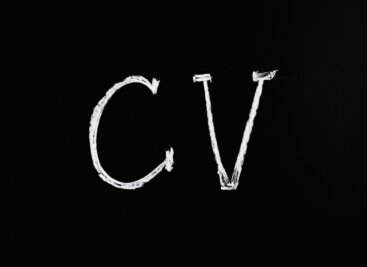Small and medium-sized consultancy firms make up a significant portion of the UK consultancy market. These are often established by either one founder or a handful of former colleagues. Typically such firms will initially have adopted a business model which is reliant on associates to deliver client assignments. In some cases, the ratio of revenue delivered may well be 20:80 (employees: associates) in the early stages of a firm’s evolution. However, at some stage, most consulting firms will consider whether a move to employ a higher percentage of permanent staff is desirable.
Consultancy firm objectives
David Bailey, a strategic advisor to leaders of professional services and IT services firms, has had extensive experience of just such a decision. He explains that it is important for a consultancy (or any professional services firm) to carefully consider its goals and overall objectives as this will help to determine the type of business model it should adopt i.e. employees, an associate based or a hybrid approach.
He stresses the importance of ensuring the Owner Directors and Equity Partners of his client firms spend time considering the type of professional services firm they wish to develop and their objectives:
- Asset growth
- Income generation
- Lifestyle choice
Although this may change over time, it will provide the basis/key to the optimum business model.
He explained that small firms that keep a low ratio (e.g. 20:80) could work well as lifestyle firms, using regular associates to keep project risk down and providing enough income for the owners. Driving an income generation model either keep this low ratio but drives higher volume through the business, becoming more of a contracting firm, or adds employees overtime moving the model towards 50:50 or further if forward sales volume is predictable. If the goal is asset growth then to add value a firm will be aiming to increase the ratio to a minimum of 70:30, not least to exploit the higher margin earned on permanent employees.
The role of associates in a consultancy firm
The obvious advantage of using associates is that it is a variable cost. A firm can hire interim consultants fast, with specific skills and only when client work is contractually confirmed.
However, there are a number of downsides to a reliance on associates:
- There is no retained knowledge within the business that can then be applied to other clients.
- An associate has no need or requirement to build client relationships, sell other services or train and manage other staff members. Indeed, in certain instances, there may be a conflict of interest between the firm and an associate.
- If as a result of over-reliance on associates, there is a shortage of senior-level permanent consultants to run and manage projects, the outcome can be a greater onus on client management at the partner level. Consequently, partners may spend less time on business development and more on other managerial objectives.
- Project profitability is reduced.
- Too many associates on any one project increase the risk of delivery quality and client management problems.
- Associates rarely add to the culture or values within a consulting firm and indeed a reliance on associates may undermine attempts to develop a coherent culture.
- Good associates with sought after skills are expensive and not always available at short notice.
- Potential IR35 problems
Evolution of a management consultancy firm
At some point, a firm may take the decision to reduce its reliance on associates, and increase the number of permanent staff. A strategy will be required to achieve this objective and consideration should be given to the following:
- What grades of the consultant should be recruited in the first instance to maximise return on investment
- How best to recruit and retain this talent
- The cultural and operational changes which may be required within the management consultancy firm to ensure effective talent management
Who should you recruit first?
Caroline Boston, who has worked as an internal recruiter and also for Prism Executive Recruitment, advises that “very broadly, the answer to this question is that you should initially recruit talent at the very bottom and the very top”.
At the most junior level, you should be looking for analysts and generalists: consultants who can crunch the numbers and do the initial diagnostic work. These will be millennials and a critical factor in attracting and retaining them will be (amongst other things) to have in place the infrastructure to provide the training and career progression necessary.
At the top level, firms should be seeking engagement leads. These people will be consultants at Senior Manager or Director level with the capability and mindset to develop a network of contacts and play an active and positive role in client relationships. A common desire is that a candidate at this level should come with a ready-made network of potential clients but this is very rare indeed. Valuable time will be wasted holding out for this forlorn hope! However, adopting the mantra of “hire character: train skill” will be a candidate’s personal attributes and career goals that determine how successful he or she will be in sales and business development, as well as executing the firm’s vision and mission.
Focus on skills
In her extensive significant experience of recruiting for small and mid-sized firms, Caroline notes that staffing at mid-levels (senior and managing consultants) may well remain predominantly Associates, particularly if a firm needs to “buy-in” specialist skills. This makes good business sense, but firms should look for skills that are repeated across all projects with a view to recruiting permanent employees at this level in the medium term.
David Bailey believes that the process of increasing the number of permanent employees, especially decisions on the level, will very much depend on the type of firm and its area of expertise. For example, a single founder is likely to require support from permanent senior staff at the outset, whereas 3-4 co-founders or Partners may not. He adds that a further challenge for a firm is to know what experience they are looking for and to avoid the temptation to hire too many ‘generalists’.

Challenges and how to overcome them
In any management consultancy firm, the highest cost will be people. The potential overhead of permanent consultants underutilised is a financial commitment and a risk that consultancies will try to avoid. A focus on utilisation means that firms are more inclined to delay recruitment until there is the certainty of the forward revenue stream, preferring to hire associates in the short term. However, in order to increase the value of the company in the long term, perhaps ultimately with a view to sales, growth in permanent headcount is crucial.
Timing of Recruitment
One of the most difficult obstacles to overcome is the decision and timing of when to increase headcount. The lead time to hire for a consulting job can be as much as six months. Consequently firms will be making a commitment to employ permanent staff for future projects many months hence. There is a talent shortage in management consulting, (the much-discussed “war for talent”), and thus a medium-term objective should be to proactively recruit staff rather than wait until there is an immediate need, which might result in the temptation to opt for an Associate.
Talent Acquisition
A relatively small consultancy practice is unlikely to have a dedicated “talent manager”, so it may be necessary to recruit someone to handle the recruitment and talent management aspect, whether this is an internal hire or using the services of a consultancy recruitment agency.
It may be tempting to rely on in house recruitment and candidate referrals as external recruitment agencies are perceived to be expensive. However, the results of a Prism Hiring Survey found that the firms experiencing the fewest problems in recruiting adopted a hybrid model including using agencies. Those who reported most challenges used agencies either rarely or not at all. A good consulting recruitment firm can be an excellent ambassador for a small or medium-sized firm’s brand which may be less well known in the recruitment market, and it is important to select a professional consultancy recruiter with integrity. If the agency can find a candidate to start with you sooner than you can, their fee may be partly offset by being able to bill them to clients earlier!
Talent Management
The firm will be required to fundamentally change the way it engages with staff. Associates are delivery focussed and require a particular type of management. However, in order to attract and retain the best talent, an organisation must, amongst other things, define and articulate its employee value proposition, provide opportunities for learning and development and ensure career pathways. David Bailey confirms the importance of ensuring organisations meet the higher-level needs of their staff. This engenders a feeling of belonging which enables staff to feel motivated and to deliver an exceptional service to the client.
When to expand/consider growth?
It is clear that the catalyst for changing the balance of permanent employees and associates should be the overall objectives of the firm but there will be external influences at play.
Although the Big 4 still dominate the consultancy market in the UK, a new report from the Economist Intelligence Unit suggests that in a bid to get the best value for their money, clients are increasingly eyeing specialised and smaller consultancies for specialist services.
Not only are small firms often more competitive pricing these services, but an analysis of the report suggests that clients who employ large consultancy firms are more likely to experience frustration and that they are paying a premium for advice that they do not see as being relevant to their business. Furthermore, smaller firms often adopt more integrated working practices that frequently maximises value.
The increased popularity of specialist consultancies suggests now may be a good time to consider growth. Smaller consultancies require a clear strategy to find great people and future stars, but with clarity of employer brand and proposition, small firms can offer many advantages over large firms in their quest for talent.
We are most grateful to David Bailey Strategic Advisor to leaders of Consultancy, Professional Services and IT Services organisations and to Caroline Boston of New Minds Resourcing for their input.
If you would like to discuss how Prism could help you to find and secure your ideal candidate please contact Chris Sale, Managing Director, Prism Executive Recruitment on 0203 143 5926 or [email protected].
You can find more information on our recruitment solutions on our Client Services pages.


